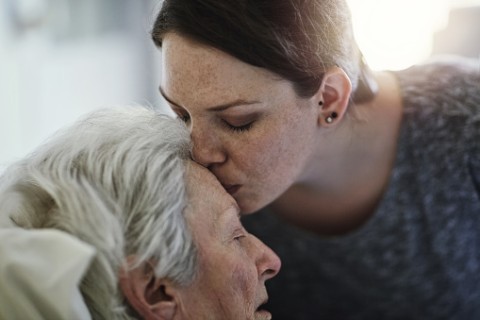Family caregivers and the different journeys they’re on
The roller coaster, the marathon, and the deep end

My church gathers for worship at 9:15 a.m. every Sunday. The pews are filled with family caregivers who find themselves on different types of elder care journeys. Some are on a roller coaster, some are in a marathon, and some are in the deep end.
One son sits next to his 85-year-old mother, who lives independently but suffers from the side effects of congestive heart failure. She manages her day-to-day schedule well—until a fall or other emergency throws everyone into a tailspin. Her son wonders when the next crisis will happen. He is on the roller coaster of family care.
One daughter will spend the afternoon with her father, who lives in a local nursing home. She will sort his laundry for the week and play a modified game of dominoes. If it’s a good day, he’ll remember her name and that she’s his daughter. She has been caring for him and witnessing his slow and persistent cognitive decline for more than a decade. She is in the marathon of family care.




